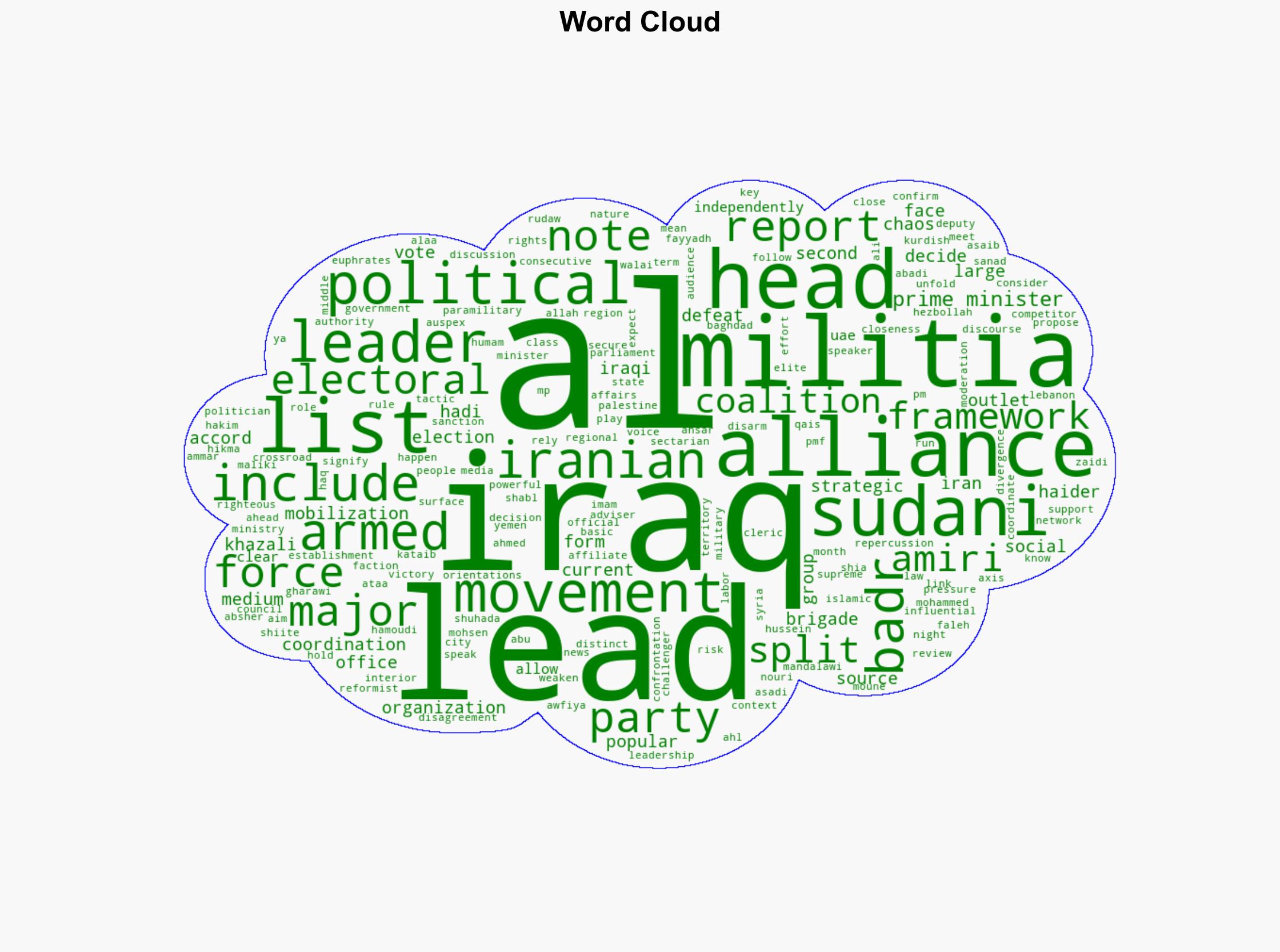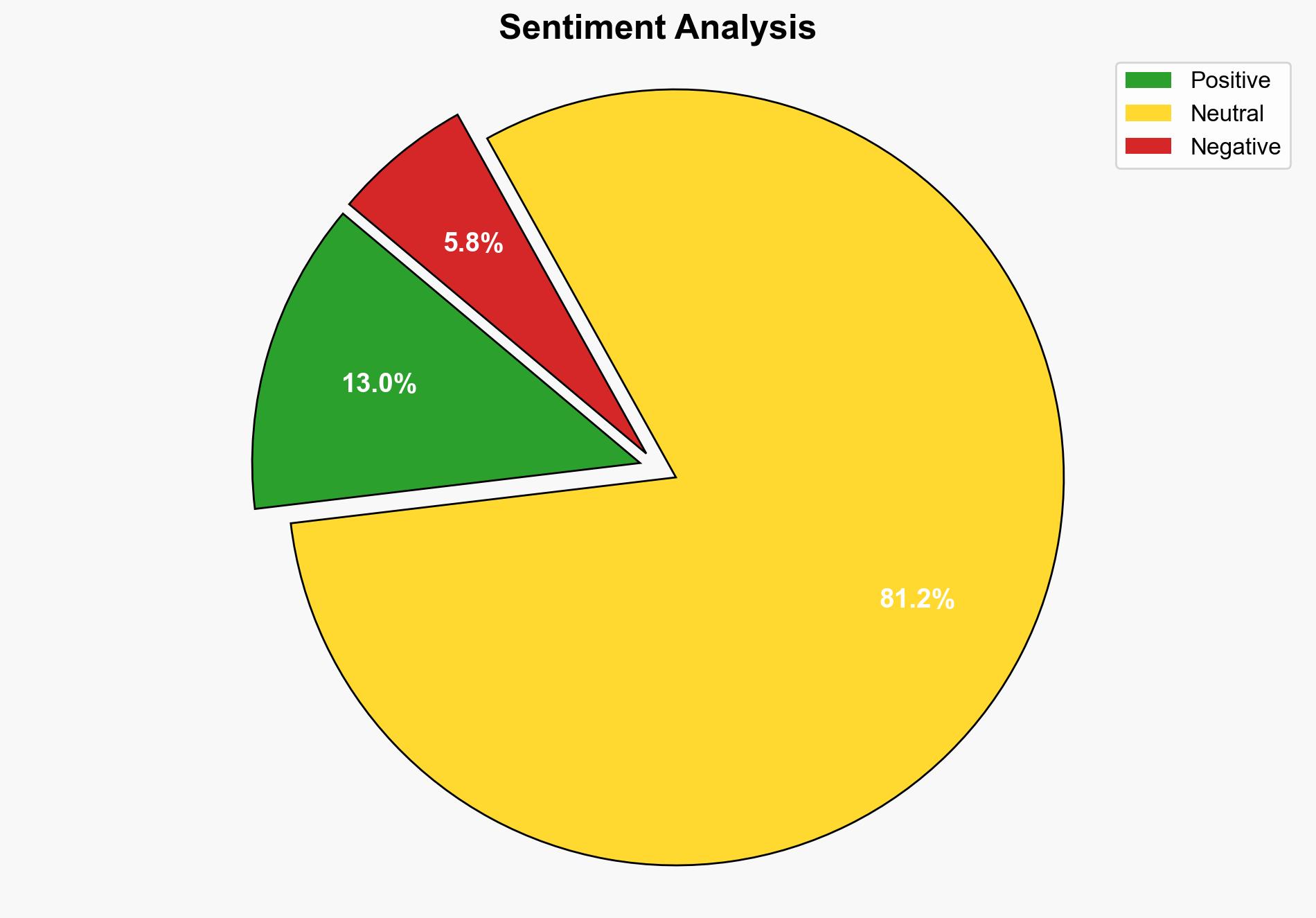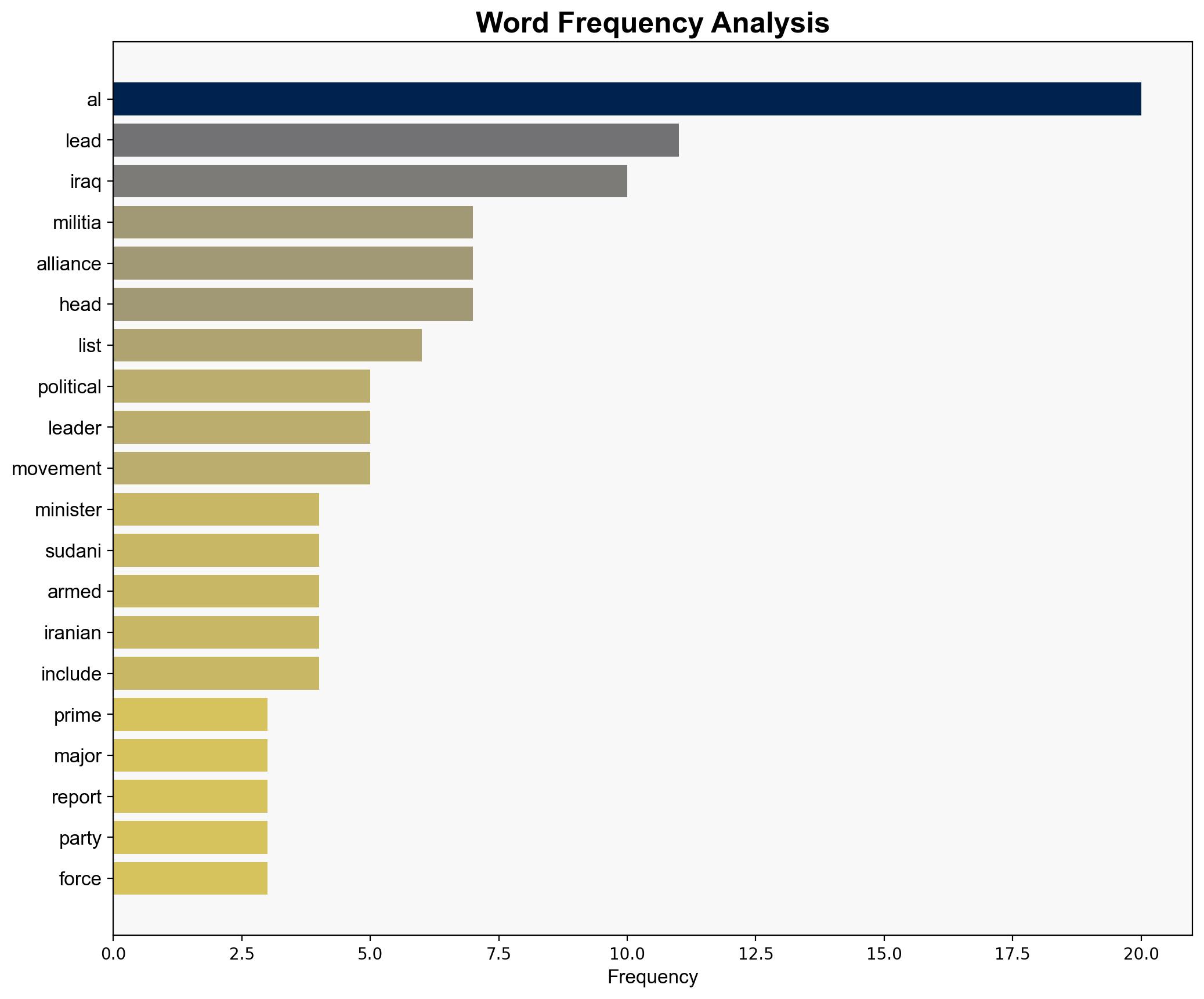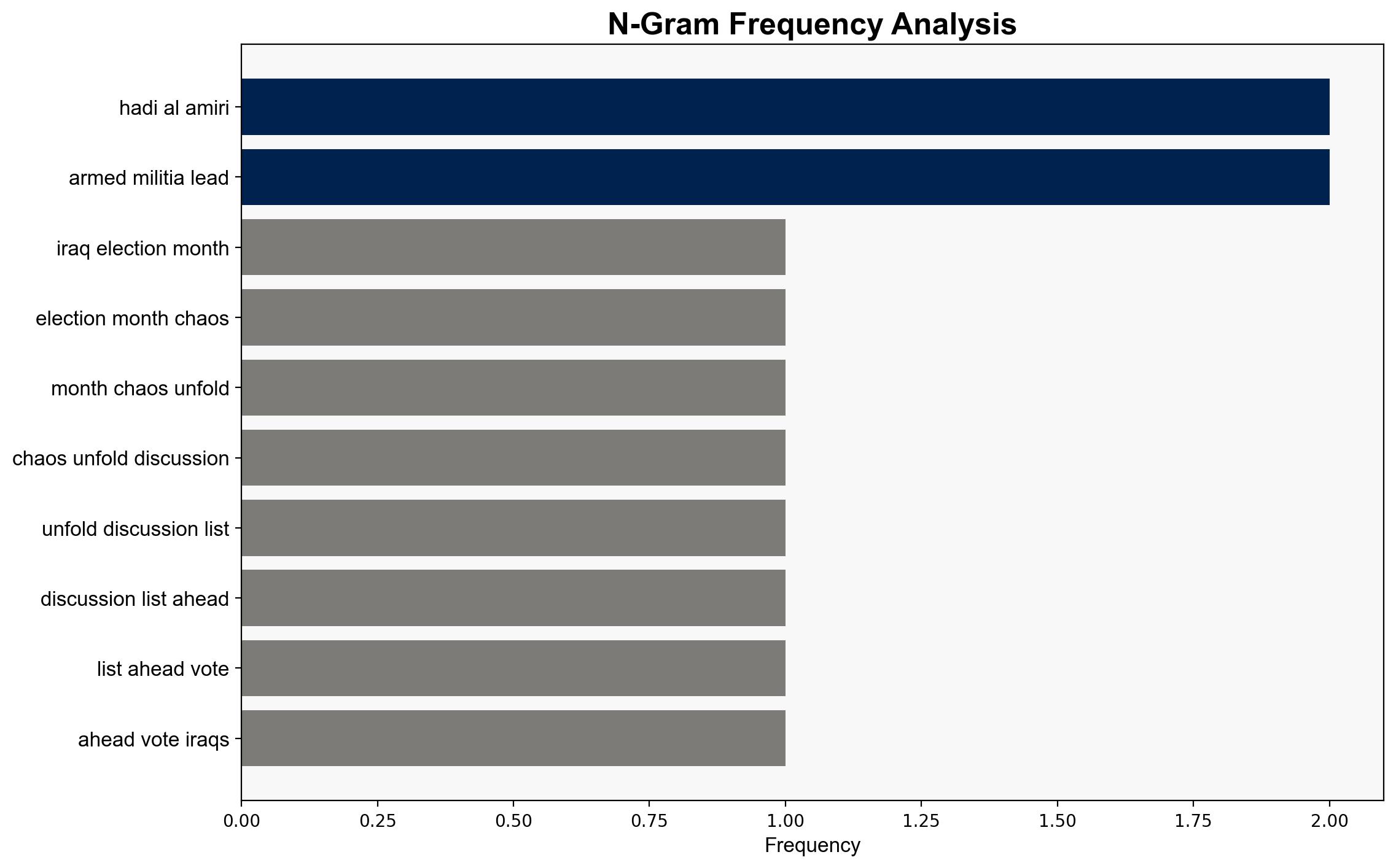Chaos ahead of elections among Iran-backed factions in Iraq – The Jerusalem Post
Published on: 2025-04-23
Intelligence Report: Chaos ahead of elections among Iran-backed factions in Iraq – The Jerusalem Post
1. BLUF (Bottom Line Up Front)
The upcoming elections in Iraq are marked by significant internal discord among Iran-backed factions, posing a risk to political stability. Key factions are experiencing strategic disagreements, potentially leading to a fragmented electoral landscape. This fragmentation could weaken Iran’s influence in Iraq, offering opportunities for other political actors to gain ground. It is crucial to monitor these developments to anticipate shifts in regional power dynamics.
2. Detailed Analysis
The following structured analytic techniques have been applied to ensure methodological consistency:
SWOT Analysis
Strengths: Established political influence of Iran-backed factions; historical ties with key Iraqi political figures.
Weaknesses: Internal divisions and leadership disagreements; potential loss of unified electoral strategy.
Opportunities: Emergence of reformist movements; potential for new alliances with non-Iranian-backed entities.
Threats: Increased political fragmentation; potential for escalated conflict with rival factions.
Cross-Impact Matrix
The interplay between internal factional disputes and regional geopolitical shifts could exacerbate instability. The weakening of Iran-backed groups may embolden rival factions, potentially leading to increased political and military confrontations.
Scenario Generation
Scenario 1: Factions reconcile, leading to a consolidated electoral strategy, maintaining Iran’s influence.
Scenario 2: Continued fragmentation results in weakened electoral performance, reducing Iran’s sway.
Scenario 3: New alliances form, shifting the balance of power towards reformist or nationalist groups.
3. Implications and Strategic Risks
The fragmentation among Iran-backed factions could lead to a realignment of political forces in Iraq. This may result in increased volatility and potential for conflict, affecting regional stability. The situation also presents opportunities for external actors to influence Iraqi politics, potentially altering the geopolitical landscape.
4. Recommendations and Outlook
- Monitor factional developments closely to anticipate shifts in alliances and power dynamics.
- Engage with emerging reformist movements to understand their potential impact on the political landscape.
- Scenario-based projections suggest a need for contingency planning:
- Best Case: Factions reconcile, stabilizing the political environment.
- Worst Case: Escalation of conflict leads to widespread instability.
- Most Likely: Continued fragmentation with moderate shifts in power dynamics.
5. Key Individuals and Entities
Mohammed Shia al-Sudani, Hadi al-Amiri, Faleh al-Fayyadh, Haider al-Abadi, Nouri al-Maliki, Qais Khazali, Ammar al-Hakim, Ahmed al-Asadi, Haider al-Gharawi, Hussein Moune, Mohsen al-Mandalawi.
6. Thematic Tags
(‘national security threats, regional focus, political instability, Iraq elections, Iran influence’)




